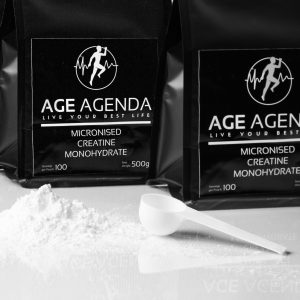Description
Collagen is the most abundant protein in the human body, serving as a fundamental building block for skin, bones, muscles, tendons, and ligaments. It plays a critical role in maintaining the structural integrity and functionality of tissues, acting as a scaffold that provides strength and elasticity. Collagen is not a single entity; there are at least 28 types of collagen, each serving distinct functions in the body. Among these, type X collagen holds a unique and specialized role, especially in relation to bone health. This article explores the broader importance of collagen and delves into the significant contributions of type X collagen to the skeletal system.
What is Collagen?
Collagen is a fibrous protein composed of amino acids, primarily glycine, proline, and hydroxyproline. These amino acids form a triple-helix structure that lends collagen its incredible strength and durability. There are five primary types of collagen that dominate the human body:
- Type I: Found in skin, bones, tendons, and ligaments, contributing to tensile strength.
- Type II: Found in cartilage, aiding in joint elasticity and cushioning.
- Type III: Found in skin, blood vessels, and internal organs, supporting elasticity and structure.
- Type IV: Found in the basement membrane of cells, acting as a barrier and support structure for tissues.
- Type X: Found in the growth plate cartilage, critical for bone development and repair.
The Role of Collagen in Overall Health
Collagen’s primary function is to provide structure and support. In the skin, it maintains elasticity and hydration, reducing the appearance of wrinkles and fine lines. In joints, collagen contributes to cartilage resilience, ensuring smooth movement and protection against wear and tear. Collagen also supports the health of hair, nails, and the digestive tract by reinforcing the lining of the gut.
As people age, natural collagen production declines, leading to visible signs of aging, joint discomfort, and a decrease in bone density. This makes collagen supplementation and dietary intake through sources like bone broth, fish, and collagen peptides increasingly popular for preserving health and vitality.
Type X Collagen: A Specialized Function
Type X collagen is a less commonly discussed but highly specialized form of collagen. It is primarily found in the growth plate cartilage, where it plays a pivotal role in endochondral ossification—the process by which growing cartilage is replaced by bone during development. This type of collagen is essential for the formation and growth of long bones, such as the femur and tibia, and for the maintenance of healthy bone turnover and repair.
Bone Health and Type X Collagen
Bones are dynamic tissues that undergo continuous remodeling throughout life. This process involves the coordinated activity of osteoblasts (cells that build bone) and osteoclasts (cells that break down bone). Type X collagen is central to this balance, particularly during the crucial phases of bone growth and healing.
- Developmental Role: During childhood and adolescence, type X collagen ensures the proper mineralization of growth plate cartilage, enabling the steady elongation of bones.
- Fracture Healing: In adults, type X collagen is involved in the repair of bone fractures. It facilitates the transition from soft to hard callus formation, a critical step in regaining bone strength and functionality.
- Bone Density: Type X collagen also helps maintain bone density by supporting the structural framework within which minerals like calcium and phosphorus are deposited.
Collagen and Bone Health: A Broader Perspective
While type X collagen is indispensable for bone development and repair, other types of collagen also contribute to skeletal health. Type I collagen, for example, constitutes the bulk of the organic matrix in bones, providing tensile strength and flexibility. A deficiency in type I collagen can lead to conditions like osteoporosis, where bones become brittle and prone to fractures.
Collagen is also vital for joint health, as type II collagen forms the basis of cartilage in synovial joints. This cartilage acts as a cushion between bones, reducing friction and preventing wear over time.
Preserving Collagen Levels for Optimal Health
Given its importance, ensuring adequate collagen levels is crucial for maintaining overall and bone health. Natural collagen production declines with age, but several strategies can help preserve or boost collagen levels:
- Nutrition: Consuming foods rich in vitamin C, such as citrus fruits and leafy greens, supports collagen synthesis. Bone broth, fish skin, and chicken are excellent dietary sources of collagen.
- Supplements: Collagen peptides and hydrolyzed collagen supplements provide the building blocks needed for collagen production. These are particularly beneficial for aging populations and individuals recovering from bone injuries.
- Lifestyle Choices: Avoiding excessive sun exposure, quitting smoking, and reducing sugar intake can minimize collagen degradation.
Collagen is an indispensable protein that serves as the foundation for many of the body’s tissues, including skin, joints, and bones. Among its various types, type X collagen stands out for its critical role in bone growth, repair, and maintenance. By facilitating the transition from cartilage to bone, type X collagen ensures the proper development and regeneration of the skeletal system.
As natural collagen production declines with age, proactive measures such as a collagen-rich diet, supplementation, and healthy lifestyle choices can help maintain optimal levels. Whether you are looking to support bone health, enhance skin elasticity, or improve joint function, collagen remains a cornerstone of overall well-being.





